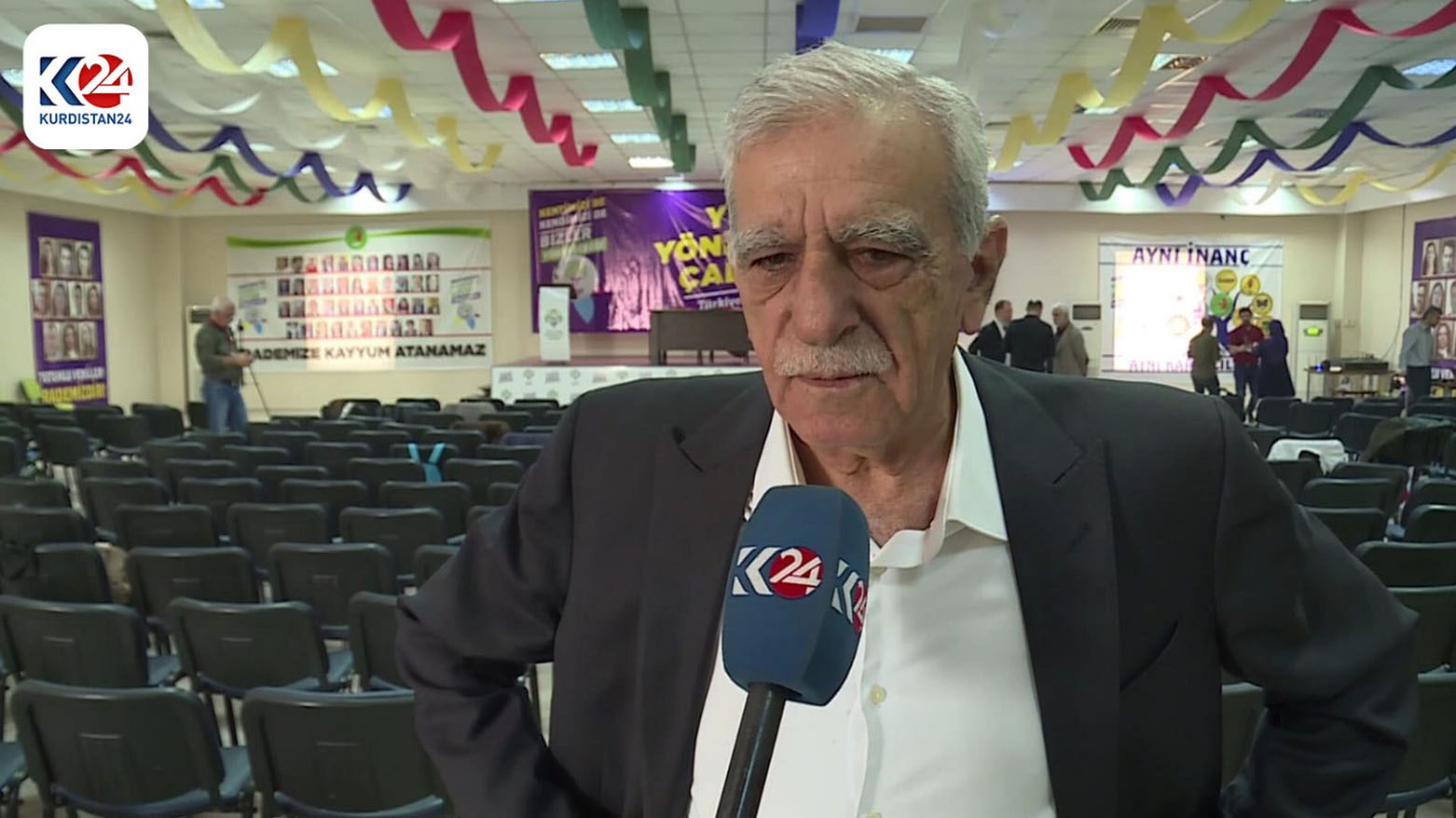Veteran Kurdish politician Ahmet Turk withdraws from active politics

ERBIL, Kurdistan Region (Kurdistan24) - Veteran Kurdish politician and dismissed co-mayor of Turkey’s Mardin Province, Ahmet Turk, on Friday said he withdrew from active politics ahead of the country’s next local elections scheduled for March 31, 2024.
The Mezopotamya Agency (MA) reported that the pro-Kurdish People's Equality and Democracy Party (DEM Party), of which Turk is a member, held a referendum yesterday to determine the DEM candidates for co-mayors, municipal council members and provincial general council members in 10 provinces.
“I had previously announced that I would withdraw if I did not exceed 50 percent. I thank the public for their support. I am withdrawing from active politics. I will continue the struggle of the Kurds on different platforms,” Turk told MA.
Read More: Turkey releases veteran Kurdish politician, mayor
The widely-respected 81-year-old Kurdish politician, whose surname was given by the young Turkish Republic’s authorities after the introduction of the 1934 “Surname Law,” had served several times as a lawmaker for Mardin at the Turkish Parliament and was elected twice as the Mayor of Mardin.
The seasoned politician was one of the thousands of Kurdish political prisoners who were subjected to torture in the infamous Diyarbakir Prison after the 1980 Turkish military coup d’etat.
“Ahmed Turk is an icon in the Kurdish struggle in Turkey, a veteran politician with significant achievements in the fight for Kurdish freedom. He will be missed, but his legacy will continue to inspire future generations,” Sierwan Najmaldin Karim, president of the Washington Kurdish Institute told Kurdistan24.
“Despite facing government pressure, including years behind bars and physical torture, he remained steadfast in his commitment to serve his people,” Karim further noted.
Bill Park, a senior Visiting Research Fellow at King's College London, told Kurdistan 24 that Turk was seen as what most non-Turks would regard as a moderate voice, committed to dialogue.
“This moderate leadership has gone - perhaps not permanently in every instance - for varying reasons - exile, imprisonment, etc. But the HDP/DEM hold-up in the polls, and the PKK (Kurdistan Workers’ Party) and its Syrian affiliates are under pressure but still in the field. This could result in a seeming radicalisation of the Kurdish movement in the short and medium term, or may be an apparent quiescence, but the Kurdish issue will not disappear in my view because repression of this kind doesn't ever succeed indefinitely.”
“Sooner or later, both Kurdish political and violent activism will resurrect itself. And so it will go on, with lulls and peaks, until Turkey sees sense - if ever it does,” Park added.
However, he also wondered how long Turkey's cross border fight with the 'PKK' will go 'unnoticed'. “There is disillusion with Turkey in the West, and mistrust in Baghdad, Damascus and beyond. A return of [ISIS] could trigger a response more critical of Turkey, as would campaign failures or enduring conflict and repression. Either way, Turk or no Turk, it is far from over.”
Editing by Dastan Muwaffaq
